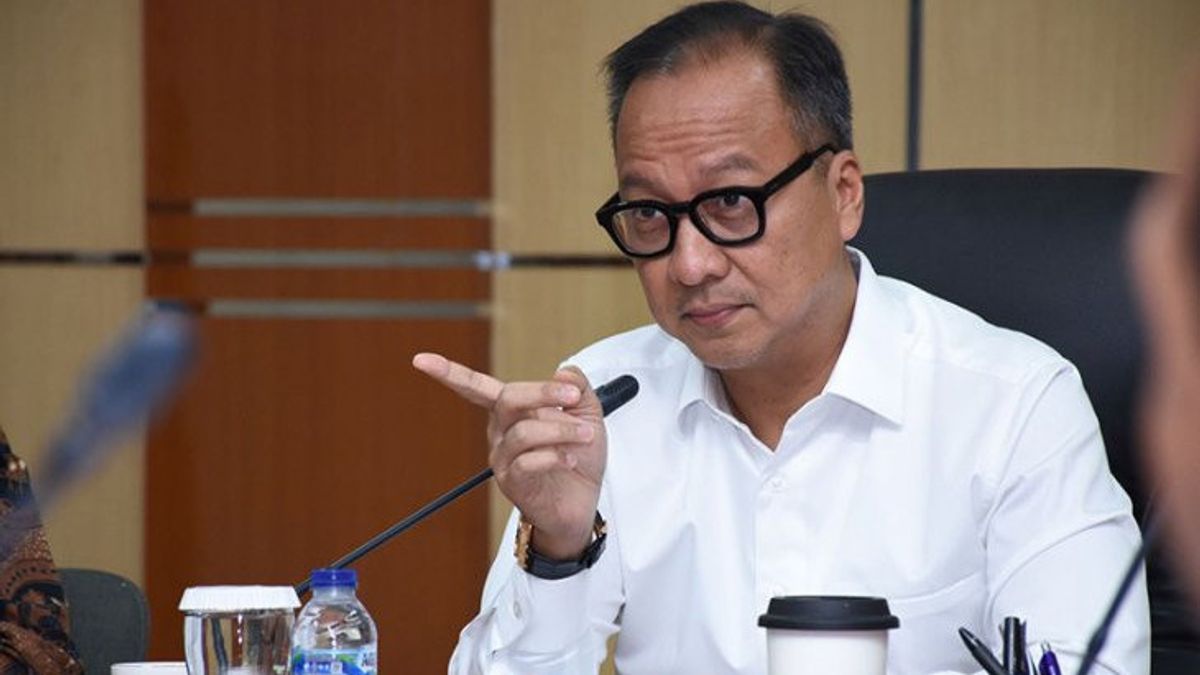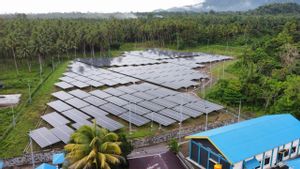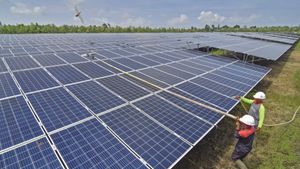JAKARTA - Minister of Industry Agus Gumiwang Kartasasmita asked his staff at the Ministry of Industry to be active in discussing decarbonization. According to him, this is intended so that the Ministry of Industry is not only used as a scapegoat in the midst of the recent hot air pollution issue.
"We must be active. The Ministry of Industry must also be offensive. Not again if there are problems from the community, especially with regard to our pollution at the Ministry of Industry as scapegoats. It can no longer happen," he said at the opening of the 2023 Ministry of Industry Working Meeting with the theme 'Completion of the Industrial Sector Decarbonization Action Plan Towards the 2050 Net Zero Emissions (NZE) Target in Jakarta, Wednesday, October 11.
He explained that the emission rate of Greenhouse Gas (GHG) in the industrial sector in Indonesia from 2015 to 2022 was recorded at 8-20 percent compared to the total national GHG emissions.
Meanwhile, when viewed from the source of emissions in the industrial sector in 2022, the emission component from the energy use category in the industry accounts for 64 percent, emissions from industrial waste 24 percent, and the production and use of products or Industrial Processes And Product Use (IPPU) by 12 percent.
"For this reason, it is necessary to carry out massive and structured decarbonization efforts," added Agus.
By 2022, decarbonization efforts have succeeded in reducing GHG emissions by 53.9 million tons of CO2e.
SEE ALSO:
The baseline Business as Usual (BaU) emission without mitigation was 292.0 million tons of CO2-equivalence and actual (industrial) emissions were 238.05 million tons of CO2-equivalence.
In addition, he said, the GHG emission reduction target for the IPPU component in 2030 is 7 million tons of CO2e, while the realization of IPPU emission reduction in 2022 has reached 7.138 million tons of CO2e or 102 percent of the target.
"This shows optimism that decarbonization efforts in the industrial sector are not something that is impossible to achieve. Therefore, if the national NZE target is achieved by 2060, then we must be committed to achieving the NZE target in the industrial sector more quickly, namely by 2050," said Agus.
The English, Chinese, Japanese, Arabic, and French versions are automatically generated by the AI. So there may still be inaccuracies in translating, please always see Indonesian as our main language. (system supported by DigitalSiber.id)












